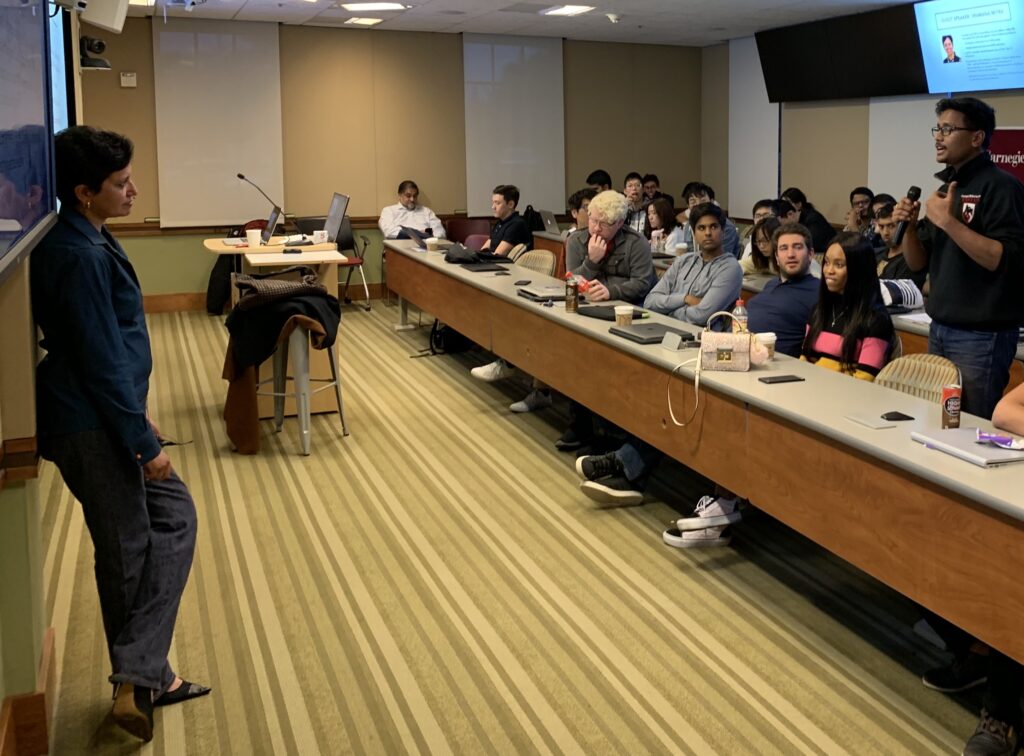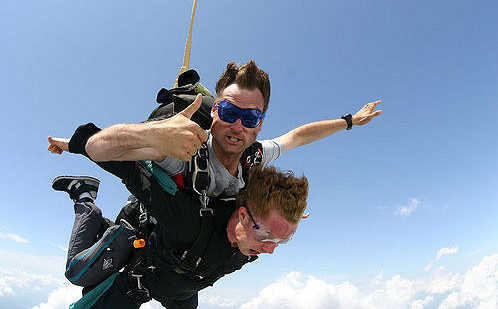Online Education
The Startup Velocity Question: What is the Right Funding Strategy?

For a venture funded startup facing velocity problems, it is a good idea to remember that before you go out to raise another round of funding, you have to have an answer to the velocity question: WHAT is hindering acceleration?
>>>Featured Videos
Can 1M/1M Help Me Raise Money?
How Does 1M/1M Democratize Entrepreneurship Education?
How Does 1M/1M Democratize Management Consulting?
When Is The Right Time To Join 1M/1M?
Can 1M/1M Help Me With Business Development?
Can 1M/1M Help Me With Market Sizing?
Can 1M/1M Help Me Validate My Product?
Will I Have Private 1-on-1 Sessions In 1M/1M?
How Does 1M/1M Help Entrepreneurs Connect With Silicon Valley?
Mentoring or Consulting?
Why Does 1M/1M Charge $1000 a Year?
Why Does 1M/1M Partner With Local Organizations?
Why Don\’t Mentoring Networks Work?
Why Is It Important To Study With 1M/1M Now?
Dan Stewart Story
Vikrant Mathur Story
AI Startups Summer Internship 2024

If you have a strong interest in artificial intelligence, as well as entrepreneurship and starting a business, this is the summer internship for you.
One Million by One Million (1Mby1M) is the first global virtual accelerator, headquartered in Silicon Valley. We aim to nurture a million entrepreneurs to reach a million dollars each in annual revenue and beyond, thereby creating a trillion dollars in global GDP and ten million jobs.
Silicon Valley entrepreneur and strategy consultant Sramana Mitra founded 1Mby1M in 2010. She was named one of LinkedIn’s Top 10 Influencers in 2015.
April Coupons for AI Tech Startup and Methodology Courses

Looking to dive into the world of Artificial Intelligence startups? Look no further than our comprehensive AI tech startup courses on Udemy. Whether you’re a budding entrepreneur or a seasoned developer, our courses cover everything from building ML startups to understanding the future landscape of AI technology. Gain invaluable insights into generative AI strategies, machine learning case studies, and the transition from developer to ML entrepreneur.
We are also offering six new courses covering the crucial methodologies required for entrepreneurs to build successful tech startups. From positioning strategies to pricing models, validation techniques to market analysis, our methodology courses provide essential tools for navigating the competitive tech landscape. Whether you’re looking to refine your B2B sales strategy or build a dynamic team, we will guide you towards making a splash in the ever-evolving world of technology startups.
For the month of April, we are offering you up to 85% off these courses.
All the coupons will expire on April 30, 2024, so enroll today!
Artificial Intelligence:
How To Build AI Startups with Sramana Mitra: TRY1MBY1MAPR2024AI
Generative AI Startup Strategy Case Studies: TRY1MBY1MAPR2024GAI
New Pricing for Tech Startups Course and Coupons

This month we are introducing a new course Pricing for Tech Startups by Sramana Mitra [Coupon Code: TRY1MBY1MMAR2024PRI]. There’s a common misconception that offering everything for free and then figuring out monetization later is a viable strategy. However, we firmly believe in assigning value to your products and services from the outset. Pricing is both important and complex, requiring careful analysis and strategic decision-making. This course shares proven methodologies and best practices honed over years of experience.
We have packaged our time-tested 1Mby1M methodology for building technology startups into many short courses on Udemy as part of our aim to democratize entrepreneurship education at scale globally.
For the month of March we are offering you up to 85% off the following courses as well.
All of these coupons will expire on March 31, 2024, so enroll today!
Bootstrapping:
Bootstrap First, Raise Money Later with Sramana Mitra: TRY1MBY1MMAR2024BTS
Bootstrapping a Startup with a Paycheck with Sramana Mitra: TRY1MBY1MMAR2024PAY
March Tech Startup Course Coupons and New Validation Course

This month we are introducing a new course, Validation for Tech Startups by Sramana Mitra [Coupon Code: TRY1MBY1MMAR2024VAL]. Whether your sights are set on B2C or B2B markets, mastering validation is paramount, particularly for tech startups. Understanding the intricacies of customer needs and preferences is the cornerstone of success. You will learn that while development is crucial for testing ideas, prioritizing validation over technology development is the key to gaining traction in the market.
We have packaged our proven 1Mby1M methodology for building technology startups into many short courses on Udemy as part of our aim to democratize entrepreneurship education at scale globally.
For the month of March we are offering you up to 85% off the following courses as well.
All of these coupons will expire on March 31, 2024, so enroll today!
Bootstrapping:
Bootstrap First, Raise Money Later with Sramana Mitra: TRY1MBY1MMAR2024BTS
Bootstrapping a Startup with a Paycheck with Sramana Mitra: TRY1MBY1MMAR2024PAY
New Positioning Course and March Tech Startup Course Coupons

This month we are introducing a new course, Positioning for Tech Startups by Sramana Mitra [Coupon Code: TRY1MBY1MMAR2024POS]. Whether you’re launching a new venture or revitalizing an existing one, this course teaches how to navigate the intricacies of positioning, showcasing its pivotal role in achieving product-market fit. With insightful lectures and real-world examples, this course unveils the keys to strategic positioning, from segmentation to competitive analysis, empowering entrepreneurs to captivate markets and drive demand.
We have packaged our proven 1Mby1M methodology for building technology startups into many short courses on Udemy as part of our aim to democratize entrepreneurship education at scale globally.
For the month of March we are offering you up to 85% off the following courses as well.
All of these coupons will expire on March 31, 2024, so enroll today!
Bootstrapping:
Bootstrap First, Raise Money Later with Sramana Mitra: TRY1MBY1MMAR2024BTS
Bootstrapping a Startup with a Paycheck with Sramana Mitra: TRY1MBY1MMAR2024PAY
6 AI Udemy Course Coupons and More for March

This month we are offering an up to 85% discount on our six artificial intelligence courses on Udemy:
How To Build AI Startups with Sramana Mitra: TRY1MBY1MMAR2024AI
Generative AI Startup Strategy Case Studies: TRY1MBY1MMAR2024GAI
Machine Learning AI Startup Case Studies: TRY1MBY1MMAR2024ML
Artificial Intelligence ML Startup Preview: TRY1MBY1MMAR2024AIM
From Developer to ML Entrepreneur Preview: TRY1MBY1MMAR2024D2EM
Humanity’s Future in the Age of AI: TRY1MBY1MMAR2024HUM
We have packaged our proven 1Mby1M methodology for building technology startups into many short courses on Udemy as part of our aim to democratize entrepreneurship education at scale globally.
For the month of March we are offering you up to 85% off the following courses as well.
All of these coupons will expire on March 31, 2024, so enroll today!
Bootstrapping:
Bootstrap First, Raise Money Later with Sramana Mitra: TRY1MBY1MMAR2024BTS
Bootstrapping a Startup with a Paycheck with Sramana Mitra: TRY1MBY1MMAR2024PAY
January Udemy Coupons for Tech Startup Courses

As a part of our aim to democratize entrepreneurship education at scale globally, our proven 1Mby1M methodology for building technology startups has been packaged into short courses on Udemy.
For the month of January we are offering you up to 85% off the following courses.
These coupons will expire on January 31, 2024, so enroll today!
Bootstrapping:
Bootstrap First, Raise Money Later with Sramana Mitra: TRY1MBY1MJAN2024BTS
Bootstrapping a Startup with a Paycheck with Sramana Mitra: TRY1MBY1MJAN2024PAY
New AI Course and January Tech Startup Course Coupons

This month we are introducing a new course, Humanity’s Future in the Age of AI. This course delves deep into the imminent era of AI and its profound impact on our world. Based on lectures given over the past several years, this course explores the current and forthcoming implications of AI’s pervasive integration into our society. Throughout the course, we encourage you to contemplate, question, and innovate in the face of unprecedented societal shifts.
As a part of our aim to democratize entrepreneurship education at scale globally, our proven 1Mby1M methodology for building technology startups has been packaged into short courses on Udemy.
For the month of January we are offering you up to 85% off the following courses.
These coupons will expire on January 31, 2024, so enroll today!
Bootstrapping:
Bootstrap First, Raise Money Later with Sramana Mitra: TRY1MBY1MJAN2024BTS
Bootstrapping a Startup with a Paycheck with Sramana Mitra: TRY1MBY1MJAN2024PAY
In 2024, Spend an Hour a Day with a Successful Entrepreneur

As I think about LinkedIn’s #BigIdeas2024 initiative, I am acutely aware of the fact that 2023 has given our industry one of the most powerful inflection points in the evolution of Artificial Intelligence.
AI has now entered popular consciousness.
As such, the desire to take advantage of this discontinuity is akin to yet another tech gold rush. Techies are chomping at the bits to start companies all over the world.
If you are such a techie looking to step into entrepreneurship, I suggest you make a new year resolution to spend an hour a day in 2024 with a successful entrepreneur.
You are thinking, how the hell do I do that?
